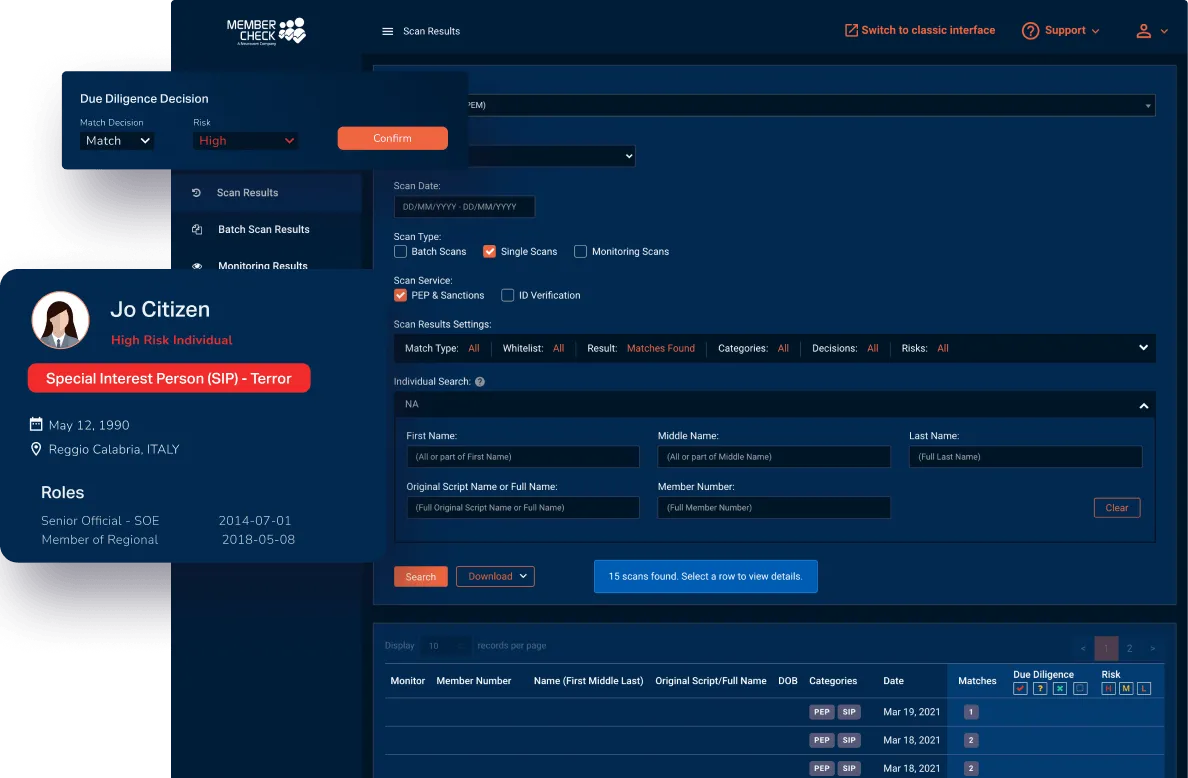Our Solutions
Solutions
PEP and Sanctions Checks
Adverse Media Check
Customer Identity Verification
Know Your Business (KYB)
Enhanced Due Diligence
AML Consulting Service
Compliance as a Business (CaaB)
Transaction Monitoring
Jurisdictional Risk Checks
Our Coverage
Pricing
Blog
About
Contact Us
Sign In
-
ProductOur SolutionsFraud Prevention Solutions
-
Global Coverage
Australia
Canada
Kuwait
India
Egypt
Mexico
Nepal
New Zealand
Philippines
Puerto Rico
Russia
Singapore
South Africa
United States
United Kingdom
Hong Kong
United Arab Emirates
View All CountriesAccelerating Digitial Trust in the UKView Page -
ResourcesUse CasesCase StudiesIndustries We Work With
-
Tranche 2 ReformsTranche 2 ReformsChecklists
-
About
- Contact










































